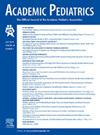照顾者对社会需求照护连续性的看法:一项儿科初级照护的定性研究。
IF 2.8
3区 医学
Q1 PEDIATRICS
引用次数: 0
摘要
背景:为响应新的监管要求,卫生系统正在扩大或实施新的健康相关社会需求(HRSN)筛查项目。目的:探讨护理人员对(1)HRSN筛查、(2)HRSN电子病历(EMR)文档以及(3)社区资源转诊机制(包括使用面向患者的基于网络的社区资源平台)的体验和偏好。方法:在马里兰州巴尔的摩市的一个学术实践中,对英语或西班牙语接受初级保健的儿科患者的护理人员进行焦点小组和半结构化访谈。数据收集一直持续到主题饱和,定性分析遵循迭代主题分析方法。结果:在2023年6月至2024年2月期间参与了75名护理人员。主题包括:(1)普遍筛查和频繁筛查的认可和感知价值,以及筛查方式的不同偏好;(2)对筛查过程和EMR记录的负面影响和污名的恐惧;(3)在与家庭进行HRSN时,强调透明度、信任和响应的重要性;(4)优先考虑当面帮扶;(5)在线导航工具作为一种补充资源的价值,具有增强自主权和实时公平获取资源的潜力;(6)利他意识导致的资源接受犹豫。结论:定性研究结果强调了HRSN筛查、记录和转诊在儿科初级保健中的细微差别。实践和卫生系统应使护理人员参与这些过程,以确保方法符合文化,并认识到一些人在披露未满足的社会需求时所面临的脆弱性。本文章由计算机程序翻译,如有差异,请以英文原文为准。
Caregiver Perspectives on the Continuum of Social Needs Care: A Qualitative Study in Pediatric Primary Care
Objective
To explore caregivers’ experiences with and preferences for 1) HRSN screening, 2) electronic medical record (EMR) documentation of HRSN, and 3) community resource referral mechanisms including the use of a patient-facing, web-based community resource platform.
Methods
Focus groups and semi-structured interviews were conducted with caregivers of pediatric patients with the preferred language of English or Spanish receiving primary care in an academic practice in Baltimore, Maryland. Data collection occurred until thematic saturation was reached, and qualitative analysis followed an iterative thematic analysis approach.
Results
Seventy-five caregivers participated between June 2023 and February 2024. Themes included 1) approval and perceived value of universal and frequent screening, with varied preferences in screening modality; 2) fear of negative repercussion and stigma surrounding screening process and EMR documentation; 3) emphasis on importance of transparency, trust and responsiveness when navigating HRSN with families; 4) preference for in-person assistance; 5) value of an online navigation tool as a supplemental resource with potential to enhance autonomy and real-time equitable access to resources; and 6) hesitancy in receiving resources due to sense of altruism.
Conclusions
Qualitative findings highlight the nuanced nature of HRSN screening, documentation, and referral in pediatric primary care. Practices and health systems should engage caregivers in these processes to ensure approaches are culturally responsive and recognize the feeling of vulnerability some face in disclosing unmet social needs.
求助全文
通过发布文献求助,成功后即可免费获取论文全文。
去求助
来源期刊

Academic Pediatrics
PEDIATRICS-
CiteScore
4.60
自引率
12.90%
发文量
300
审稿时长
60 days
期刊介绍:
Academic Pediatrics, the official journal of the Academic Pediatric Association, is a peer-reviewed publication whose purpose is to strengthen the research and educational base of academic general pediatrics. The journal provides leadership in pediatric education, research, patient care and advocacy. Content areas include pediatric education, emergency medicine, injury, abuse, behavioral pediatrics, holistic medicine, child health services and health policy,and the environment. The journal provides an active forum for the presentation of pediatric educational research in diverse settings, involving medical students, residents, fellows, and practicing professionals. The journal also emphasizes important research relating to the quality of child health care, health care policy, and the organization of child health services. It also includes systematic reviews of primary care interventions and important methodologic papers to aid research in child health and education.
 求助内容:
求助内容: 应助结果提醒方式:
应助结果提醒方式:


